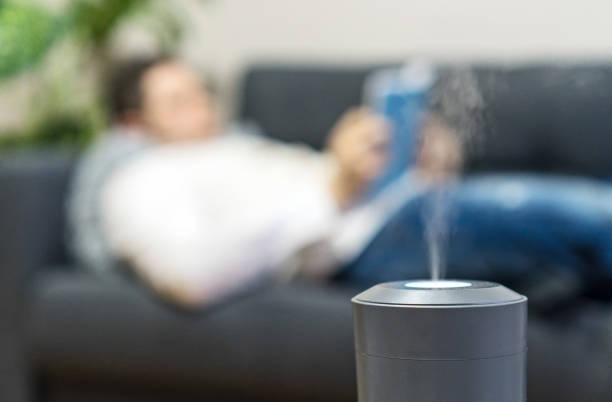WHAT IS SINUSITIS?
The word sinus means "shallow space" in Latin. Sinuses are cavities located inside the facial bones and skull. The respiratory tract cells in it humidify and warm the inhaled air, secrete mucus, and retain foreign particles and bacteria. Inflammation of this cell layer in the sinuses is called sinusitis.
This inflammation can lead to the inability to expel mucus due to sinus pressure and narrowed sinus passages that cause discomfort. Bacteria in the increased amount of mucus can create more inflammation and cause infection.
Sinusitis can be caused by bacteria or viruses, often after a cold or allergy. There are 4 types according to the duration of sinusitis:
- Acute Sinusitis: These are sinusitis lasting less than four weeks.
- Subacute: It lasts 4 - 8 weeks. It may not respond to treatment at first. The course of sinusitis varies from acute to chronic.
- Chronic: Despite appropriate treatment for 6-8 weeks, there is no regression or improvement in complaints.
- Recurrent: If there are 3 or more acute sinusitis attacks in a year, this is recurrent sinusitis.

WHY DOES SINUSITIS OCCUR?
- During upper respiratory tract infections such as the common cold, the mucous membrane lining the nose swells and therefore the opening of the sinuses into the nasal cavity is prevented.
- Allergies also cause the mucous tissue to swell and produce more mucus and can close the sinus openings.
In such cases, where the sinuses are prevented from opening into the nasal cavity, the inside of the sinuses becomes a suitable breeding ground for bacteria and viruses. This bacterial or viral growth creates an infection inside the sinuses, causing sinusitis. Also other reasons:
- Abnormalities in the nasal structure such as curvature, septum deviation
- Adenoids
- Diving and swimming sports that require constant submersion
- Forceful blowing; sores of the nose
- Foreign bodies stuck in the nose
- Weakened immune system
- Complications of dental infections and treatments
- Cigarettes and cigarette smoke
WHAT ARE THE SYMPTOMS OF SINUSITIS?
Although it varies with age, the most common symptoms are:
- Dark runny nose that lasts longer than a week
- Nasal congestion
- Postnasal drip
- A feeling of fullness in the face and ears
- Cough
- Taste-smell loss
- Headache
- Facial pain
- Earache
- Toothache
- Bad breath
- Weakness
- Fire
PREVENTION OF SINUSITIS
What you can do to prevent the development of sinusitis:
- Keeping the immune system strong with a healthy and balanced diet
- Giving importance to hand hygiene and washing hands regularly
- Humidifying the living environment air
- Staying away from people who show signs of respiratory tract infection
- Avoiding air pollution and cigarette smoke
- If there is an allergic disorder, to be treated
- If there is nasal bone curvature, size and swelling of the nasal concha, to be treated
HOW TO HEAL SINUSITIS?
When you suspect that you have sinusitis, consult your doctor to find out the cause and treatment methods. Sinusitis treatment can be applied in different ways by looking at various factors such as the underlying cause of sinusitis, what type of bacteria or virus it is caused by, or the age of the patient.
Your doctor may prescribe nasal sprays and washes to relieve nasal congestion, and pain relievers to relieve headache and facial pain. Antibiotics can be used in sinusitis thought to be of bacterial origin. Sinusitis treatment usually requires multiple treatments. For chronic or recurrent sinusitis, you may need to see an allergist or immunologist.
Supportive treatment is usually applied to patients with acute sinusitis. Humidification of the ambient air, nasal sprays are among the supportive treatment applications. Increasing the amount of water consumed daily is one of the main applications that can be done for the natural treatment of sinusitis. Consumed liquids soften the thick mucus and facilitate its removal.

A Natural Supplement: Medicinal and Aromatic Plants’ Oils
Because of their medicinal properties, the use of essential oils can be a natural and effective way to support sinus infections and congestion.
In order for the essential oil to be used to maximize its health benefits, it is important that it is:
- Analgesic: to relieve headaches and pressure caused by sinusitis
- Antibacterial: to kill bacteria and prevent it from becoming an infection
- Antiviral: to kill viruses and prevent them from causing infections in the nasal passages
- Antiseptic: to inhibit the growth of germs and keep your sinuses clean
- Anti-inflammatory: to help relieve inflamed sinus cavities
- Antioxidant: to help fight inflammation and free radicals
- Decongestant: to relieve sinus congestion and excess mucus
- Antipyretic: to relieve any low-grade fever that may be present
- Immune system support: to help your body fight infections
- Respiratory support: to help clear congestion and breathing difficulties
Here are 4 essential oils that can help with sinus congestion and infection:
- Peppermint Oil: thanks to the active ingredient “Menthol” it contains
- Eucalyptus Oil: thanks to the active ingredient “1.8-Cineol” it contains
- Tea Tree Oil: thanks to the active ingredient “Terpinen-4-ol” it contains
- Rosemary Oil: thanks to the active ingredients “1.8-Sineol” and “Linalol” it contains
Oils of oregano, lavender, lemon peel, and clove may also be helpful.
You can use essential oils in the following ways:
- Steam inhalation: When you inhale the vapors of essential oils, they reach your sinuses, nasal passages and respiratory system directly. Fill a large bowl (500 ml) with hot water (not boiling water). Add 2-3 drops of essential oil to hot water. Cover your head and the bowl with a cheesecloth so that the steam does not disperse. Close your eyes to avoid irritation and breathe deeply for 5-10 minutes. You can apply it many times a day.
- Spreading the scent: By dripping 6-10 drops of essential oil into the water in your censer or electric diffuser, you can spread the scent. The diffuser should be open for 30-60 minutes, then the environment should be ventilated for 30-60 minutes.
- Topical Application: Add 2 - 3 drops of essential oil into 15 ml (1 tablespoon) carrier oil (sesame, sweet almond..etc) and mix them. Massage a sufficient amount of oil on your neck, chest and back area.
We recommended that you consult your doctor before using these herbal oils.
Consulting Your Doctor
Consult your doctor for the other 3 types of sinusitis except acute sinusitis.


